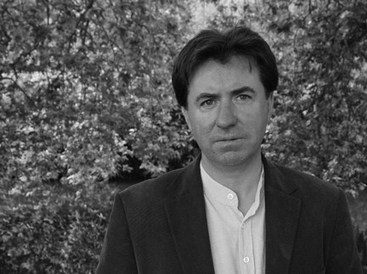THE CROWD
And today, as you walk to the match, I am beside you.
Proud to be alive. Proud to be walking beside you,
to take our seats together.
And you know my name. You know all our names.
We are beside and between you,
our souls, invisibly visible.
We are waking. We are smiling.
We are walking in your hearts.
And we are prouder still to know today,
tomorrow, next week, month or year
you will not chant us down again.
You will not chant us down in our sorrows.
You will not chant us back into the earth.
For we left the earth where we thought we were alone
yet we are beside you, laughing and singing and unbroken.
If you were to hear me among the crowd
you would hear a song.
Were I to pass invisibly among your jostling arms,
or carried to earth, you would hear me singing with you.
If I took you to one side and told you ‘you were my brother’,
what would you sing to your brother?
If I took you to one side and told you ‘you were my sister’,
what would you sing to your sister?.
You are my brother and you are my sister.
Nothing can kill me, for I am the crowd.
And the sun shone over Merseyside, over Manchester,
over the Pennines with its skylarks and brightening becks,
over Penistone and Stocksbridge and Hillsborough.
Liverpool fans in their buses – cheering the roof off –
anticipation, faith in the day and the song of life
no stronger than your own, just scousier.
You will not chant them down again.
You will not chant them down in their sorrows.
You will not chant them back into the earth.
And today, as you walk to the match, they are beside you.
Proud to be walking beside you, to take your seats together.
And you know their names. You know all their names.
We are walking to the same match.
We are walking on the same road.
We are arriving at the same gates.
We are waiting. We are laughing. We are singing.
And we do not know it but this is joy.
Nothing can kill us, for we are the crowd.
____________________________________________________________________
“The Crowd” was read live on BBC Radio 5 Live as part of the recent tribute to the ninety-six Liverpool fans who died at Hillsborough in 1989.
____________________________________________________________________
A CURE
after the Anglo-Saxon Your palms are wan. Your eyes are streams. You stare a pit into the ground in dream. I offer this heart-cure: carline thistle, hassock, stamens of iris, yew-berry, lupine, elecampane, marshmallow head, fen-mint, dill, lily, cock’s-spur grass, pennyroyal, horehound, dock, elder, earth-gall, wormwood, strawberry leaves, comfrey; mix these with well-water then sing this charm three times over: I have wrapped my love with invisible bonds, So its injury neither stirs nor seethes, Nor spreads through my body, nor festers In my soul; nor the wound wax beyond its walls, Nor the entry-wound spill; nor the exit wound seal For we must bleed freely over the field, For we must hold our hearts to the sun, Nor feel it more than the earth feels the moon. O, sing this over, love: Earth. Hold us. With all your gravity. These words can be sung. Over a wound.
____________________________________________________________________
DAVID MORLEY is an ecologist and naturalist by background. His poetry has won fourteen writing awards and prizes, including the Templar Poetry Prize, the Poetry Business Competition, an Arts Council of England Writer’s Award, an Eric Gregory Award, the Raymond Williams Prize and a Hawthornden Fellowship. His previous collection The Invisible Kings (Carcanet, 2007) was a Poetry Book Society Recommendation. He is also known for his pioneering ecological poetry installations within natural landscapes and for the creation of ‘slow poetry’ sculptures and I-Cast poetry films. His ‘writing challenges’ podcasts are among the most popular literature downloads on iTunes worldwide: two episodes are now preloaded on to all demo Macs used in Apple Stores around the world. He has performed his poems and stories at many of the major literary festivals. He writes essays, criticism and reviews for the Guardian and Poetry Review. A leading international advocate of creative writing, he wrote The Cambridge Introduction to Creative Writing and is co-editor with the Australian poet Philip Neilsen of The Cambridge Companion to Creative Writing. He currently teaches at the University of Warwick.
____________________________________________________________________
